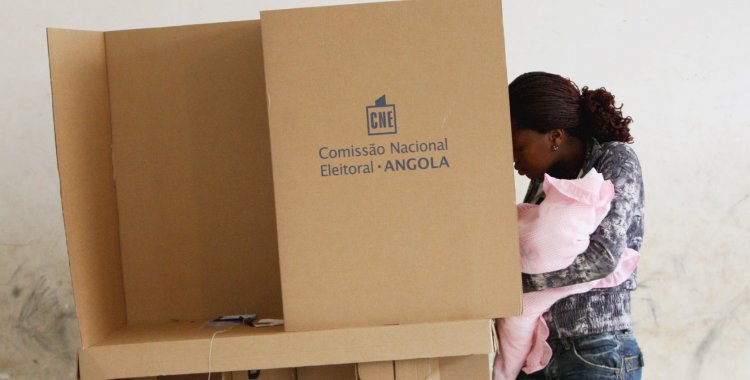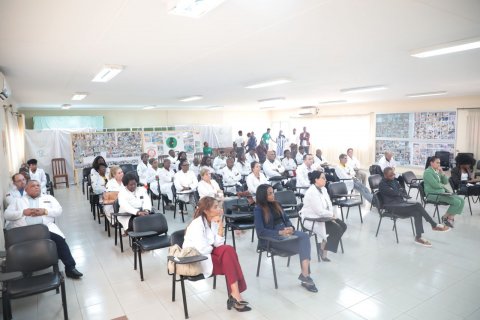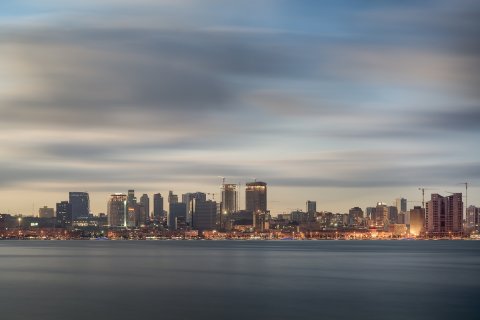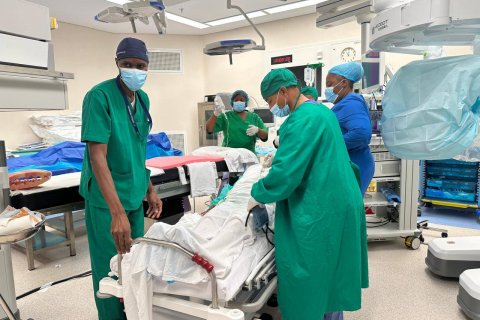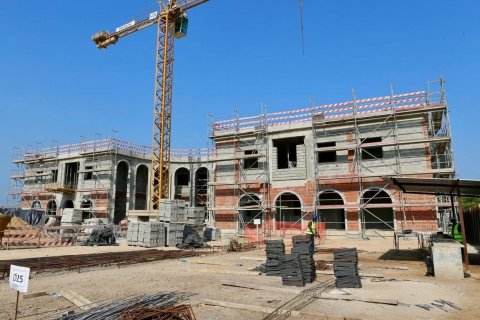"The regime conceived two new laws to change electoral rules and guarantee the maintenance of power," accused the National Union for the Total Independence of Angola (UNITA) in a statement, referring to the proposed changes presented by the Popular Liberation Movement of Angola (MPLA) to the Unofficial Electoral Registration and Electoral Law laws for discussion and approval in Parliament.
The main opposition party maintained that the MPLA's proposed law "wants to exclude from registration those who do not have an identity card", but understands that "the conditions that allow all Angolans to vote solely on the basis of their identity card have not yet been created. identity".
"Even where there are Civil Identification services facilities, not everyone will have an ID card in good time" for the 2022 general elections, warned UNITA in the same text.
"They didn't do it in 2010, they didn't do it in 2017, and now, in 2021, the difficulties continue, so we defend that massive campaigns to register in person and update people's residences must still be carried out so that everyone also has the card. voter", proposes the Black Rooster party, announcing that it will present this Thursday to the National Assembly proposals for legislative amendments alternative to those of the MPLA.
"This way, everyone will be able to vote, either with their identity card or with their voter's card", stressed UNITA, appealing to the Parliament to schedule for discussion the bills that will still be submitted today with "the same speed with which they were the proposals of (...) MPLA colleagues are scheduled".
UNITA also claims that "thousands of Angolans were excluded from the electoral process in 2012 and 2017 because of alleged errors in the electoral registration database" and that these errors "have not yet been corrected".
"They can only be corrected if the Government publishes these data in advance", maintained the party, recalling that "the law requires that every year the Government send these data to the National Election Commission by November".
Now, "since the 2017 elections, four years have passed and, as far as we know, the Government has never sent this data to the CNE. If it did, it would be good to make it public so that citizens can confirm that their registration area corresponds to fact to the place of his habitual residence and not to any other", the statement states.
Therefore, and in this context, UNITA "is proposing in the law that will be entered this afternoon" that a special period be opened, from August to December of the current year, "so that everyone can confirm that its registration and registration area voting corresponds to the place of usual residence".
"The idea that everyone chooses where they want to vote, as the MPLA intends, does not protect citizens' rights, because it facilitates exclusion maneuvers, in fact, goes against the constitutionally enshrined principle of permanence of registration", accused UNITA.
"Citizens must always vote at the same polling station, in their area of residence. It only changes if they change residence, and only they must communicate that they have changed residence. The State cannot place them in an area where they do not reside", he maintained still the party.
Regarding the electoral registration of Angolan citizens abroad, UNITA proposes that the "competent bodies of the Public Administration (...) should create the logistical and administrative conditions for citizens residing abroad and not registered in the Database of Civil Identification promote their electoral registration in person, at the registration posts".
Among the various criticisms it presents to the proposed amendment to the MPLA's electoral law, UNITA emphasizes that the ruling party's text "shows a clear intention to attack popular sovereignty and violate the rule of law, imposing its will by force" .
"This becomes clear when we read that the State Party intends to revoke article 110, which prohibits the presence of any armed force in polling stations, within a distance of 100 meters. The MPLA wants elections with armed troops in polling stations . He wants to intimidate the people. He wants to violate human rights. He wants to prevent elections from being free and fair," UNITA accused.
On the 22nd, the parliament approved the bill for the constitutional revision, with 152 favorable votes from the MPLA and some deputies in the opposition, no votes against and 56 abstentions from UNITA and CASA-CE.
The bill of constitutional revision emerges from the proposal of partial revision of the Constitution, presented by President João Lourenço.
The general elections, according to the diploma approved in general, are held "preferably during the second half of August" of the year in which the terms of office of the President of the Republic and of the deputies expire, it being up to the President of the Republic to define the date. The last general elections took place on August 23, 2017.

